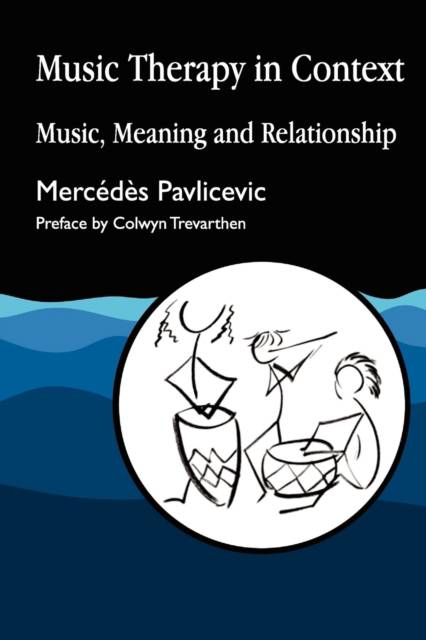
- Retrait gratuit dans votre magasin Club
- 7.000.000 titres dans notre catalogue
- Payer en toute sécurité
- Toujours un magasin près de chez vous
- Retrait gratuit dans votre magasin Club
- 7.000.0000 titres dans notre catalogue
- Payer en toute sécurité
- Toujours un magasin près de chez vous
Music Therapy in Context
A Training Manual for Home Care, Residential and Day Care Staff
Mercedes Pavlicevic
Livre broché | Anglais
36,45 €
+ 72 points
Description
Making a significant contribution to a theory of music therapy, this book addresses current music therapy debates to do with meaning: are words necessary in creative music therapy? How is clinical improvisation distinct from 'pure' music improvisation? If so, what is the nature of the distinction? How do music therapists address culture-specific nuances in music, and in concepts of healing rituals?
The book is in three parts. The first explores concepts and theories developed by music theorists and music psychologists, in order to explore meaning in music as artform, in contrast to music as therapy, concluding with an exploration of the similarities and distinctions between music improvisation whose emphasis is musical, and clinical improvisation whose emphasis is inter-personal, thus addressing the particular acuity that music therapists develop through training and practice. The second part explores the relationship between music and human emotion, in order to establish why, and on what basis, music is used as a therapeutic agent. The third part draws concepts from psychodynamic theory into the music therapy sphere in order to explore meaning, and verbal meaning in music therapy. By drawing extensively from current literature on music and developmental psychology, music therapy, psychotherapy and music theory, this book encourages music therapists not to compromise the musical process at the heart of their practice, not simply to `borrow' concepts from allied theories, but to use these with authority - the authority that this book seeks to provide.Spécifications
Parties prenantes
- Auteur(s) :
- Editeur:
Contenu
- Nombre de pages :
- 224
- Langue:
- Anglais
Caractéristiques
- EAN:
- 9781853024344
- Date de parution :
- 01-01-97
- Format:
- Livre broché
- Format numérique:
- Trade paperback (VS)
- Dimensions :
- 159 mm x 235 mm
- Poids :
- 322 g

Les avis
Nous publions uniquement les avis qui respectent les conditions requises. Consultez nos conditions pour les avis.






